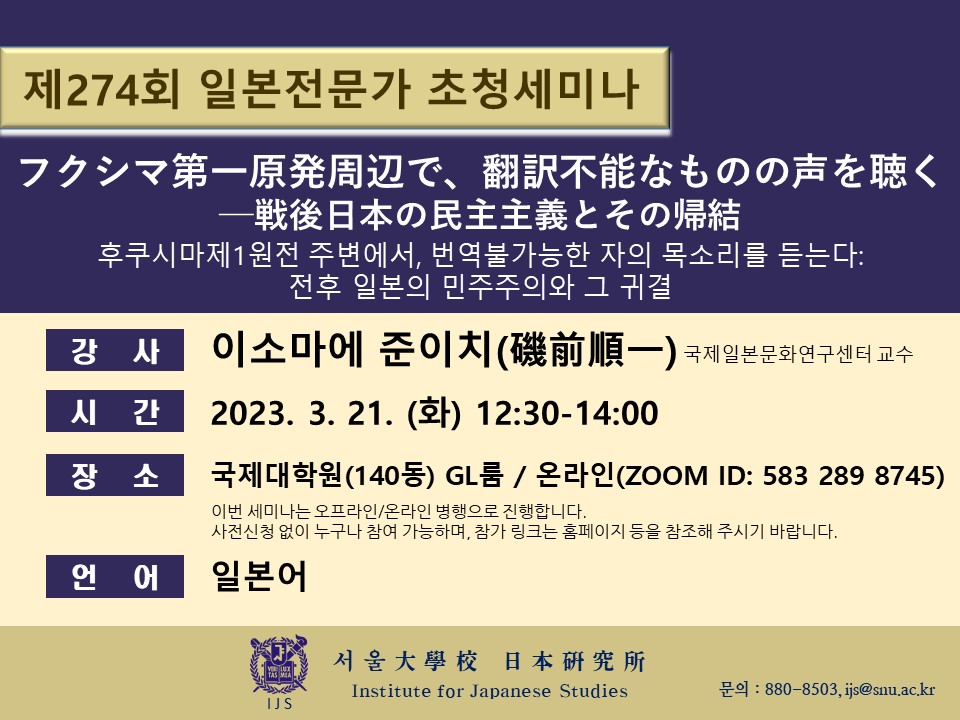
Institute for Japanese Studies (IJS) has been hosting serieses of talks encompassing Japanese politics, economy, cultures and arts. With the experts from Europe, U.S. and Japan, we deliver the talks in multiple languages including Japanese, Korean and English.
We are pleased to host No.274 lecture as a part of Japan Specialist Seminars, titled “Around Fukushima Daiichi Nuclear Power Plant, the voice of the untranslatable is heard: postwar Japanese democracy and its consequences (フクシマ第一原発周辺で、翻訳不能なものの声を聴く─戦後日本の民主主義とその帰結)”
* This seminar is held hybrid –both online and offline
Date : March 21st (Tuesday) 2023, 12:30 - 14:00
Venue : GSIS (Bldg 140) GL Room / Zoom
If you are participating online, please join via the link below on time
ZOOM ID : 583 289 8745
Link : https://snu-ac-kr.zoom.us/j/5832898745
Lecturer : Junichi Isomae (磯前順一) ,Professor at International Research Center for Japanese Studies
Title : Around Fukushima Daiichi Nuclear Power Plant, the voice of the untranslatable is heard: postwar Japanese democracy and its consequences.
フクシマ第一原発周辺で、翻訳不能なものの声を聴く─戦後日本の民主主義とその帰結
Language: Japanese
The term "white land" around Fukushima Daiichi Nuclear Power Plant refers to "difficult areas to return to." What is happening in this area? As with decommissioning work with no prospects, no one can see the inside or the future. The explosion at the nuclear power plant left lives unsaved. What did the neglected people feel when they died? This state of invisibility is called 'non-translatable' by anthropologist Talal Assad.
A religious group is holding a requiem in Hamadori, Fukushima Prefecture. The soul is said to have lost its shape. I would like to think about how the soul's true essence, not the shape of a person, is viable through the German film <Grüße aus Fukushima>(2016). When people's heartache is not detected, de-memorization that leaked from the memories of those affected by the disaster occurs. Like the memory of Japanese colonial rule; it becomes clear here whether Japan's post-war "democracy" is open to everyone or only equality recognized by the partial "us" limited to whether it is in the same position as itself.
Inquiry : SNU-IJS(880-8503 / ijs@snu.ac.kr)